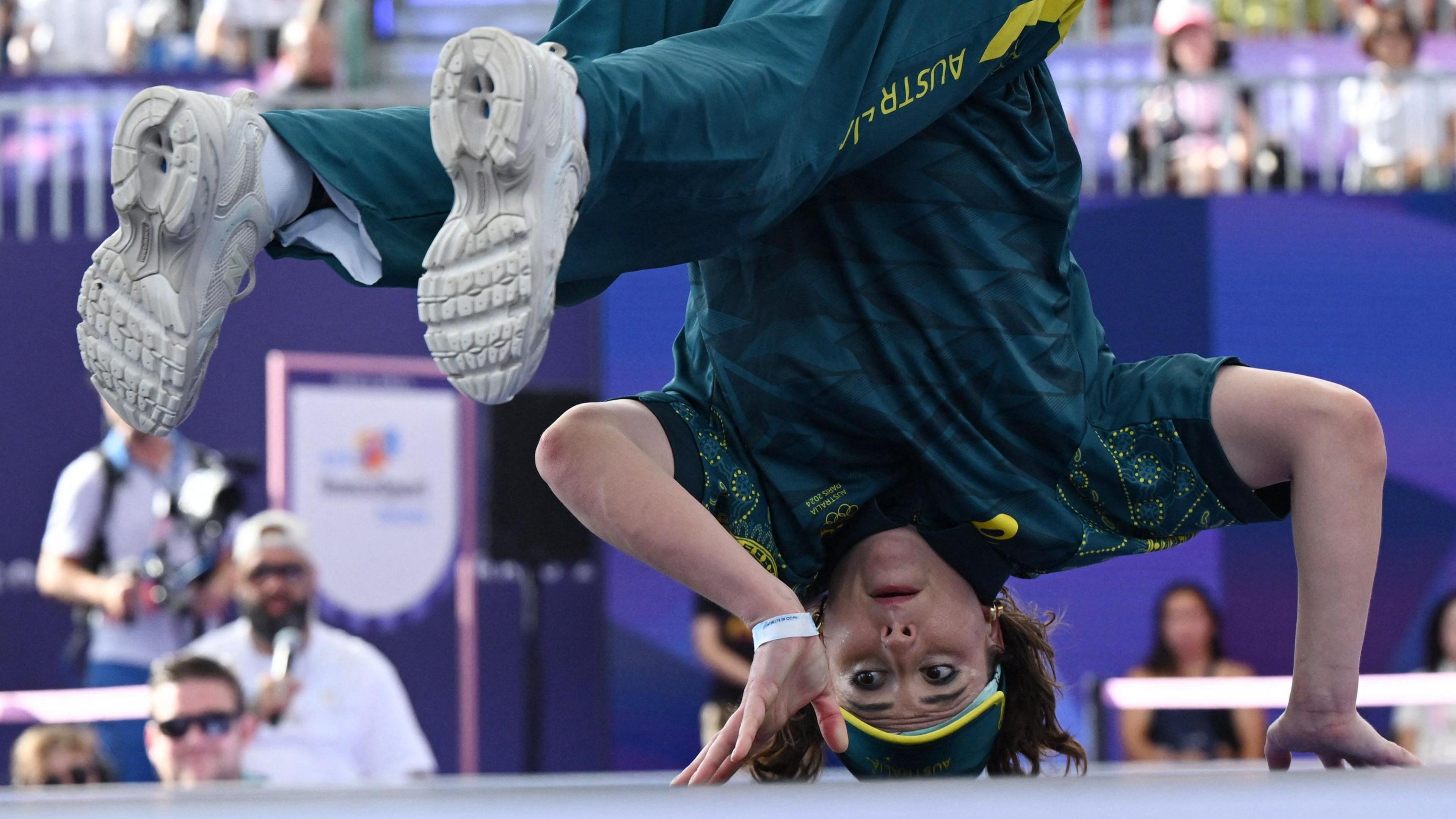Breakdancers warned of cone-shaped lump from 'extensive headspinning'

Breakdancing made its debut as an official sport at the 2024 Paris Olympics
- Published
Breakdancers have been urged to avoid headspinning after a dancer who developed a cone-shaped lump on his head due to "years of extensive headspinning practice” had to have it surgically removed.
The benign tumour, dubbed a “breakdance bulge”, was more than an inch thick, according to a report published by the British Medical Journal.
The condition is thought to be caused by repeated friction between the scalp and the floor, combined with pressure from the dancer’s body.
The unnamed dancer from Denmark trained five times a week – including up to seven minutes of headspinning – and had been wearing a hat to hide the bulge.
He had continued spinning on his head despite developing the “protuberance” over 19 years of breakdancing.
Over the last five years, it had grown bigger and more painful.
When he sought help in his thirties, medics at Copenhagen University Hospital had to rule out diseases including cancer before diagnosing a "headspin hole".
The condition typically begins with hair loss but can develop into a significant lump on the head.
The dancer's head pictured before the surgery, and one month later
One of the authors of the paper, published in the journal BMJ Case Reports on Thursday, told the PA news agency: "This report does not advocate against headspinning entirely."
"However, breakdancers who notice the early development of a breakdance bulge should consider reducing or avoiding headspins, as continuing may lead to further enlargement of the bulge", said Dr Christian Baastrup Sondergaard.
He added: "Although this is a rare condition unique to breakdancers, the successful surgical treatment in this case demonstrates that it is a viable option for symptom relief."
He added that only one prior case had been reported and encouraged further study of breakdancing injuries.
The dancer said: "It is now possible for me to go out in public without a cap... which is, of course, a very nice feeling."
He added that he had received "a lot of positive feedback", including that his head "looks completely normal".
The report notes that breakdancing involves "a range of complex and physically demanding techniques" that render dancers "particularly prone to injuries".
- Published11 September